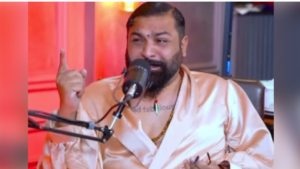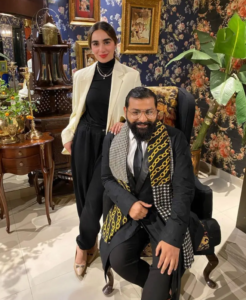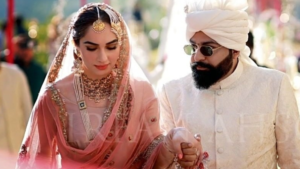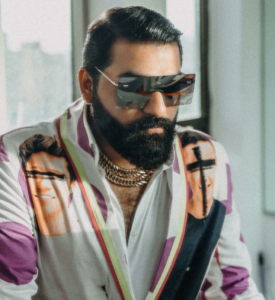“They Made Me Cry in My Car”

Famous Pakistani fashion designer Ali Xeeshan has made waves across social media after his emotional and brutally honest impression on Ahmed Ali Butt’s podcast. In the genuine conversation, the celebrated designer opened up about the deep-rooted elitism, bullying, and personal humiliation he endured early in his fashion career, especially at the hands of certain figures in the Karachi fashion scene.
A Rising Star From Lahore Rejected by Karachi
Ali Xeeshan, known for his bold designs and theatrical runway presentations, revealed that some people in Karachi’s fashion industry did not welcome his success in Lahore. After gaining overnight fame through support from Mrs. Saigol, Xeeshan said he faced harsh judgment and rejection when he brought his work to Karachi.
“I became an overnight star in Lahore. But when I came to Karachi, the fashion industry there couldn’t tolerate that acceptance I had earned,” said Xeeshan.

Raheel Rao’s Harsh Criticism Or The Turning Point
The turning point in the conversation came when Ali Xeeshan detailed an incident involving fashion editor Raheel Rao, associated with Diva Magazine. Xeeshan recounted sitting among the city’s top fashion figures when Rao handed him an article he had written about Ali’s Lahore fashion show.
“He said, ‘See, I reviewed your work. Read my article, the worst review. This trash collection from Lahore is your worth.”
Xeeshan described how the cruelty of those words shattered him emotionally.
“I cried in my car as I had lost a child. I am a fashion graduate, and you have no right or degree to evaluate my work. It was deeply personal and hurtful.”
Disrespect Toward His Mother Crossed All Lines
The most heartbreaking moment came when Ali revealed that during one of his shows in Lahore where he left a chair empty for his mother who was on Umrah. Raheel Rao made an inappropriate comment at an afterparty.

“He tapped my shoulder and said, ‘Which mother has given birth to this guy?’ That was too much. I couldn’t control my anger. I slapped him. I regret the slap, but not my pain.”
Xeeshan emphasized that while he is against violence, there is a limit to personal attacks and bullying.
“We need to stop bullying in the fashion industry and accept people for who they are.”
Calling Out Elitism in the Fashion World
The founder of Ali Xeeshan Theater Studio didn’t hold back while criticizing the elitist mindset that he feels is deeply rooted in Karachi’s fashion circle. He stated:
“This industry does not only belong to Karachi. Talent can come from anywhere, and it should be celebrated, not torn down.”
Ali’s remarks have reignited the ongoing Karachi vs Lahore fashion rivalry, a controversial but real dynamic in Pakistan’s style ecosystem.
A Brilliant Career Despite the Setbacks

Despite the discrimination and harsh treatment, Ali Xeeshan has carved a successful path in the Pakistani fashion industry. Known for his extravagant, avant-garde collections and high-end bridal couture, he remains a staple at major fashion weeks in Pakistan.
He’s earned a reputation for catering to the elite class with his intricately designed ensembles. His fashion house, Ali Xeeshan Theater Studio, is recognized for bold statements, theatrical themes, and celebrating culture with a modern twist.

Ali is also happily married and a proud father often spotted making fashion statements at events. Sometimes criticized, but always talked about.#
Social Media Reacts
After the release of the Podcast, social media users across Pakistan flooded platforms like Twitter and Instagram with messages of support. Many praised Ali Xeeshan for speaking up about bullying in the fashion world something that is often brushed under the rug.
A Wake-Up Call for the Fashion Industry
Ali Xeeshan’s emotional confession highlights a deeper issue within the creative industry.
One of exclusivity, classism, and ego. His story has echoed with many young designers and artists who face similar hurdles in industries gatekept by select influential figures.
His message is clear; talent deserves recognition without being filtered through the lens of privilege or power. It’s time to address the toxic culture, uplift emerging voices, and reshape the narrative around inclusivity in the Pakistani fashion industry.
